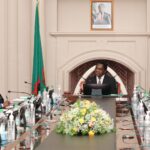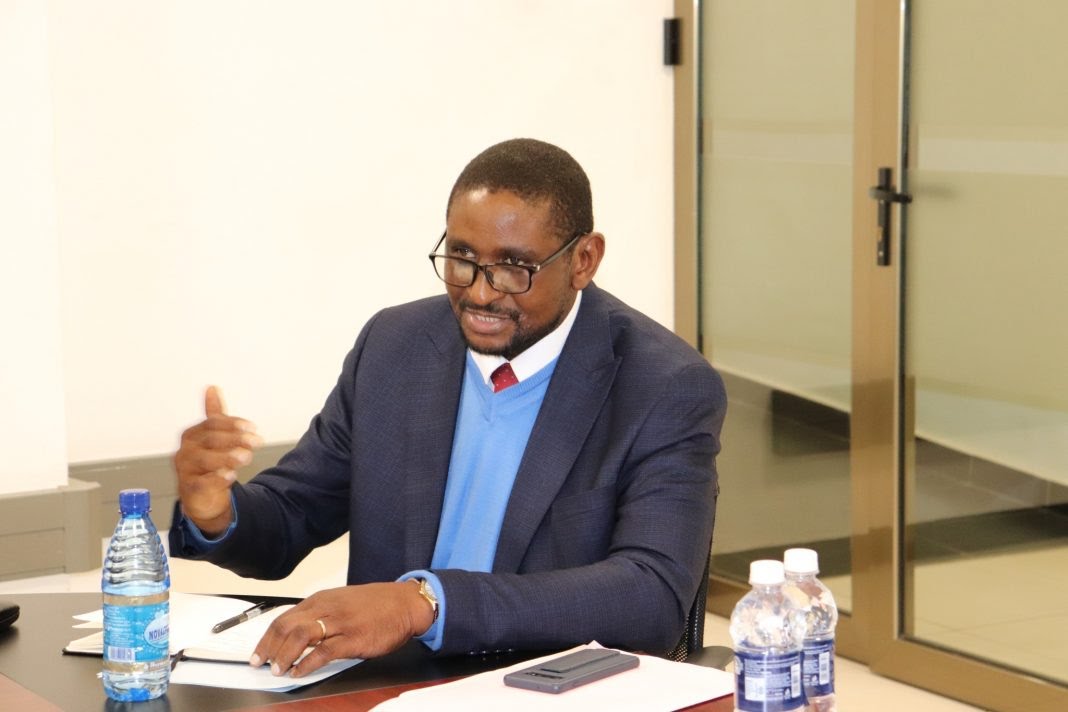The $6.8 million procurement scandal at Zambia’s Ministry of Health has cast a shadow over the governance of public resources under the UPND administration. At the heart of the controversy is Professor Christopher Simoonga, the former Permanent Secretary for Administration, whose involvement in the tender process for HIV/AIDS prevention programs has sparked widespread concern. The scandal has raised critical questions about the integrity of Zambia’s procurement processes and the government’s commitment to transparency and accountability.
The Global Fund’s Audit and the Tender Process
The controversy erupted following a scathing audit report from the Global Fund, dated July 29, 2024. The audit uncovered significant flaws in the handling of a $13.4 million grant intended for HIV/AIDS prevention programs targeting adolescent girls and young women (AGYW). According to the report, the procurement process was marred by conflict of interest and procedural irregularities, primarily involving Chreso Ministries—a faith-based organization linked to Chreso University, where Professor Simoonga previously served as Vice Chancellor.
Despite declaring a conflict of interest, Professor Simoonga chaired the procurement proceedings and influenced the formation of the evaluation committee. The audit revealed that the tender was not adequately advertised to the public, and other qualified NGOs were excluded from the bidding process. As a result, the Global Fund refused to approve the award to Chreso Ministries, citing these discrepancies and expressing concerns about the fairness and transparency of the procurement process.
The Fallout: A Political and Governance Crisis
In response to the audit’s findings, Secretary to Cabinet Felix Nkulukusa removed Professor Simoonga from his post as Controlling Officer and replaced him with Dr. Kennedy Lishimpi. This decision was seen as an attempt to mitigate the damage to the Ministry’s reputation and restore confidence among donors. However, the UPND government’s handling of the situation has drawn criticism from opposition parties and civil society groups, who argue that the administration has failed to implement strong oversight mechanisms to prevent such scandals.
The controversy highlights deeper issues within the Ministry of Health, which has already faced scrutiny over allegations of financial mismanagement. Critics have pointed to the lack of accountability and the apparent failure to establish robust systems for managing donor resources.
Professor Simoonga’s Defense
In response to the allegations, Professor Simoonga has vehemently denied any wrongdoing, labeling the accusations as politically motivated. In a Facebook post, he insisted that he had no financial ties to Chreso Ministries or the contested $6.8 million contract. He also defended the tender process, stating that it was in line with Zambia’s Public Procurement Act, although it did not meet the broader participation expectations of the Global Fund.
Simoonga further emphasized that his declaration of a conflict of interest was a voluntary, ethical decision, not a legal obligation. However, the audit’s findings suggest that he continued to exert influence over the procurement process, undermining his defense and casting doubt on his credibility.
Broader Implications for Governance
The scandal underscores a larger governance crisis within Zambia’s public sector, particularly in the management of donor funds. The Ministry of Health’s failure to adhere to best practices in procurement has raised alarms about the administration’s ability to effectively manage public resources. With donor confidence now in jeopardy, the UPND government faces mounting pressure to address the systemic weaknesses identified in the Global Fund’s audit.
The opposition has seized on the scandal as evidence of the UPND’s failure to deliver on its promises of transparency and good governance. Critics argue that the administration’s reactive response, rather than proactive reforms, suggests deeper issues within the government that may not be adequately addressed.
A Path to Reform?
The Global Fund has made several recommendations to address the deficiencies highlighted in the audit, including reconstituting the procurement committee and strengthening conflict-of-interest protocols. However, the success of these reforms will depend on the political will of the UPND government and its commitment to implementing meaningful change.
For Zambia, the implications of the scandal are far-reaching. Beyond the immediate damage to the Ministry of Health’s reputation, the scandal threatens to undermine the country’s efforts to combat HIV/AIDS and secure donor funding for critical health programs. The UPND government must act decisively to restore public trust and donor confidence, ensuring that future procurement processes are fair, transparent, and free from political interference.
In the end, the $6.8 million procurement scandal serves as a reminder of the high stakes involved in managing public funds. As the UPND government navigates this crisis, the public and international partners will be watching closely, demanding accountability and a renewed commitment to good governance.






